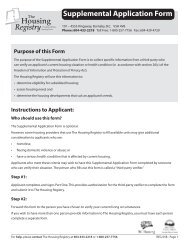Allergan Botox Brochure - SCI Information Database
Allergan Botox Brochure - SCI Information Database
Allergan Botox Brochure - SCI Information Database
You also want an ePaper? Increase the reach of your titles
YUMPU automatically turns print PDFs into web optimized ePapers that Google loves.
Urinary Incontinence and<br />
Multiple Sclerosis<br />
Urinary Incontinence and<br />
Spinal Cord Injury<br />
Many people living with<br />
multiple sclerosis (MS)<br />
experience some form<br />
of urinary incontinence<br />
at some point in their<br />
disease progression. It’s<br />
estimated that more than<br />
80% of people living with<br />
MS have bladder control<br />
problems. 1<br />
How does spinal cord injury affect<br />
bladder control?<br />
Following a spinal cord injury, signals between<br />
the bladder and the brain may not work properly.<br />
As a result, the bladder cannot tell your brain<br />
that the bladder is full and the brain cannot<br />
allow you to voluntarily empty your bladder. 2<br />
How does MS affect bladder control?<br />
Multiple sclerosis is a disease that attacks<br />
the myelin (or “insulation”) surrounding the<br />
nerves. The result is that messages travelling<br />
between the brain and other parts of the body<br />
are interrupted and slowed, causing a kind of<br />
communication breakdown between the brain<br />
and bodily functions. This includes messages<br />
sent between the bladder and the brain. 1<br />
The most common bladder-related problem<br />
that MS patients experience is overactive<br />
bladder (OAB). For MS patients, this can<br />
cause the same kinds of symptoms that spinal<br />
cord injury patients face, such as bladder<br />
contractions and squeezing out urine<br />
without warning. 1<br />
Depending on the type of spinal cord injury,<br />
two types of bladder dysfunction can occur:<br />
• The bladder tends to hold less urine than<br />
it did before the injury, and the bladder<br />
muscles may spasm involuntarily, resulting<br />
in frequent and small urinations. 2<br />
• The bladder loses its ability to contract and<br />
is stretched out, allowing more urine to<br />
accumulate, which then causes the bladder<br />
to “overflow” or leak. 2<br />
4 5

















